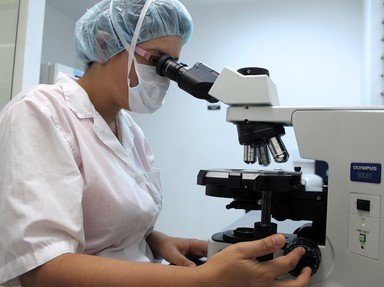Quiz Answer Key and Fun Facts
1. Mitosis and meiosis are both processes in which a cell divides and creates new cells. Mitosis produces normal body cells. What type of cell does meiosis produce?
2. Mitosis produces a different number of cells than meiosis. Which of the following statements is true?
3. The term haploid refers to a cell containing one set of chromosomes. The term diploid refers to a cell containing two sets. Both mitosis and meiosis produce diploid cells.
4. Which of the following only occurs during meiosis?
5. The stages of mitosis and meiosis are the same: prophase, metaphase, anaphase and telophase. However, something is different. Which of the following statements is true?
6. Organisms that reproduce asexually only go through mitosis.
7. Only cells produced from mitosis contain a nucleus.
8. Centrioles are involved during both mitosis and meiosis.
9. The spindle is only used during meiosis.
10. Mitosis occurs in all organisms. Which of the following organisms would not undergo meiosis?
Source: Author
Computer100
This quiz was reviewed by FunTrivia editor
WesleyCrusher before going online.
Any errors found in FunTrivia content are routinely corrected through our feedback system.


